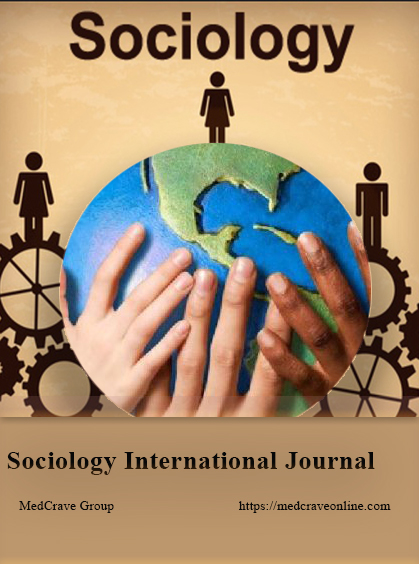Intellectual factor in African diplomatic history: Sokoto and Borno sultanates, 1786-1817
Intellectual factor in African diplomatic history: Sokoto and Borno sultanates, 1786-1817
Author(s): Mukhtar Umar BunzaSubject(s): Diplomatic history
Published by: MedCrave Group Kft.
Keywords: Borno-Sokoto sultanates; intellectual factor in diplomatic relations
Summary/Abstract: Most Western writers consider the history of Sub-Saharan Africa in the pre-colonial period as records of dark accounts, conflicts and wars, which had virtually nothing to contribute to societal development and refinement. However, a close historical scrutiny of some aspects of history of the ancient states and empires of the region unfolds entirely new historical evidence negating such unfounded, but widely spread views. The emergence and evolution of diplomacy and foreign policy of the ancient states of Ghana since the tenth century, followed by empires of Mali, Songhai in western Sudan, and Hausa states, as well as the Kanem Borno and the Sokoto Caliphate in the central Sudan reveals excellent, constructive, bilateral and beneficial inter-state relations within the sub-region, and beyond to North Africa, Middle East and Mediterranean Europe. The focus of this paper will be on the ability of two African states to resolve their inter-state differences through dialogue and recourse to intellectual and diplomatic expertise instead of violence, massacre and butchery. These two states were the Sultanates of Borno and Sokoto, which emerged in the 14th and 19th centuries respectively, and jointly survived till the British occupation in the early 20th century. The use of dialogue and application of intellectual debate in addressing differences between the two states is a legendary historical antecedent worthy of note and emulation by the so-called civilized countries of today who use excessive military threat as a determining factor in their foreign relations. The unimaginable losses in human and material resources in contemporary period could have been so amicably averted following the example of these ancient African cum Islamic alternatives. These and many other lessons that could be derived from the African Islamic diplomatic history will be addressed in this paper.
Journal: Sociology International Journal
- Issue Year: 2/2018
- Issue No: 3
- Page Range: 215-223
- Page Count: 9
- Language: English

